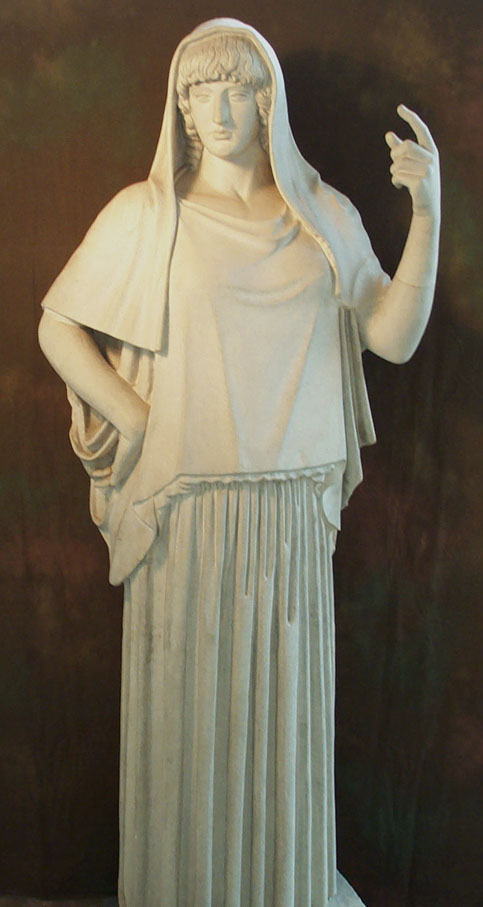| Name ▲▼ | Origin ▲▼ | Description ▲▼ |
|---|---|---|
"Azeus" | Greek | A son of Clymenus of Orchomenos, father of Actor and grandfather of Astyoche. He went with his brothers against Thebes, to take vengeance for the murder of his father, who had been slain by the Thebans at a festival of the Onchestian Poseidon. Greek |
"Cronus" | Greek | A son of Uråñuś and Ge, and the youngest among the Titans. He was married to Rhea, by whom he became the father of Hestia, Demeter, Hera, Hades, Poseidon, and Zeus. Cheiron is also called a son of Cronus. Greek |
| Goddess name "Hesperides" | Greek | These goddesses of evenings and the golden light of Sunset were the famous guardians of the golden apples which Ge had given to Hera at her marriage with Zeus. Their names are Aegle, Erytheia, Hestia, and Arethusa, but their descent is not the same in the different traditions; sometimes they are called the daughters of night or Erebus (Theogony of Hesiod 215), sometimes of Phorcys and Ceto, sometimes of Atlas and Hesperis, whence their names Atlantides or Hesperides, and sometimes of Hesperus, or of Zeus and Themis Greek |
| Goddess name "Hestia" | Greek | The goddess of the hearth, or rather the fire burning on the hearth, was regarded as one of the twelve great gods, and accordingly as a daughter of Cronus and Rhea. Greek |
| Cyclop name "Kronos or Cronus" | Greek | A son of Uråñuś and Ge, and the youngest among the Titans. He was married to Rhea, by whom he became the father of Hestia, Demeter, Hera, Hades, Poseidon, and Zeus. Cheiron is also called a son of Cronus. At the instigation of his mother, Cronus unmanned his father for having thrown the Cyclopes, who were likewise his children by Ge, into Tartarus. Out of the blood thus shed sprang up the Erinnyes. Greek |
"Leda" | Greek | A daughter of Thestius, whence she is called Thestias but others call her a daughter of Thespius, Thyestes, or Glaucus, by Laophonte, Deidamia, Leucippe, Eurythemis, or Paneidyia. She was the wife of Tyndareus, by whom she became the mother of Timandra, Clytaemnestra, and Philonoe. Greek |
Sources:
Robin Hard, the Routledge Handbook of Greek Mythology 2004

